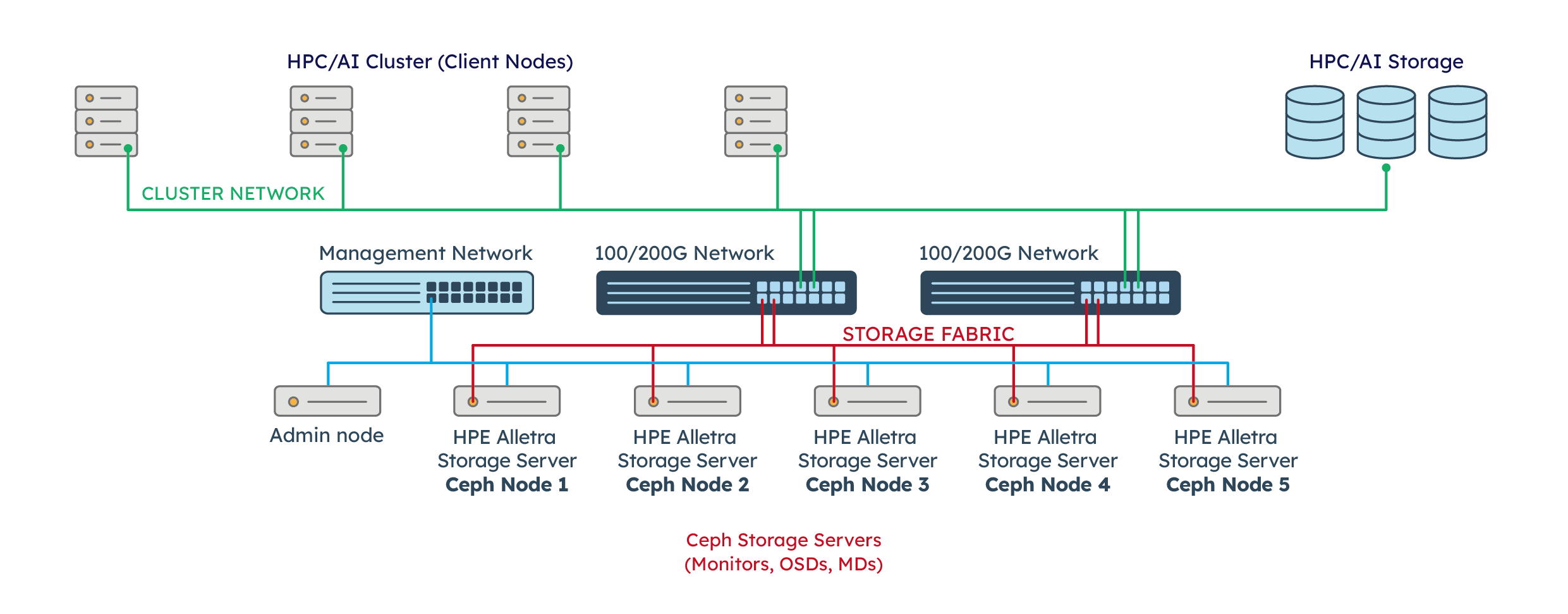
Multi-Protocol Archival Storage System for HPC & AI
On Demand Archive is a preconfigured, appliance-based archival solution, built on Ceph storage, designed for midsized HPC/AI environments to safeguard research and user data. With easy horizontal scalability, it allows seamless performance and capacity expansion by adding more nodes.
The solution offers flexibility, allowing customers to choose between OPEX or CAPEX business models to best suit their needs.
Key Features
-
Integrated with On Demand PFS for seamless offloading of data to the archival tier.
-
Redundant System with 5 or 7 Ceph nodes and redundant links to high-speed switches for enhanced reliability..
-
Snapshots can be taken at the block device or entire pool level for flexible data protection.
-
Disaster Recovery ensured through multi-site replication, guaranteeing data availability..
-
On Demand Archive available in 3 configurations: 1PB/ 2PB/ 3PB.
-
Software Defined with support for multiple storage types.
System Architecture

On Demand Archive is powered by Ceph Storage, designed for production environments where performance, security, scalability, and manageability are crucial. Ceph enhances data durability with erasure coding technologies and provides the ability to replicate data across nodes for increased availability. With dynamic block resizing, Ceph block devices can be expanded or contracted without any downtime. The snapshot feature allows you to capture snapshots of block devices or entire pools, enabling easy recovery to an unaffected state in case of issues.
Ceph is both self-healing and self-managing, continuously monitoring for failed nodes. In the rare event of a failure, it automatically replaces the affected node with a replicated one, ensuring minimal disruption. The architecture is designed for high reliability and fault tolerance.
Disaster Recovery is critical for modern businesses, and Ceph offers robust disaster recovery solutions. Notably, multisite replication replicates data across locations, providing a safeguard against potential failures and ensuring data protection.
Technology Whitepaper - Unified Storage
Secure Unified Storage essentially integrates On Demand PFS and On Demand Archive to provide an intelligent, scalable, and high-performance parallel file system integrated with archiving system tailored for HPC and AI workloads. Both solutions can also be deployed independently or together in an hybrid environment and sharing the management plane.
Data-intensive workloads in High-Performance Computing (HPC) and Artificial Intelligence (AI) are growing exponentially. With petabyte-scale datasets becoming the norm, organizations need a well-designed storage strategy that balances performance, scalability, and cost efficiency.
Traditional storage architectures, whether all-flash or disk-based systems struggle with scalability, access latency, and cost overheads. This is where On Demand Archive comes in: an intelligent, high-performance archiving solution designed to optimize HPC and AI data workflows and storage.
In association with On Demand PFS and other third-party partner solutions, the solution can support advanced features of Intelligent Data Tiering and Policy based archiving and retrieval.
